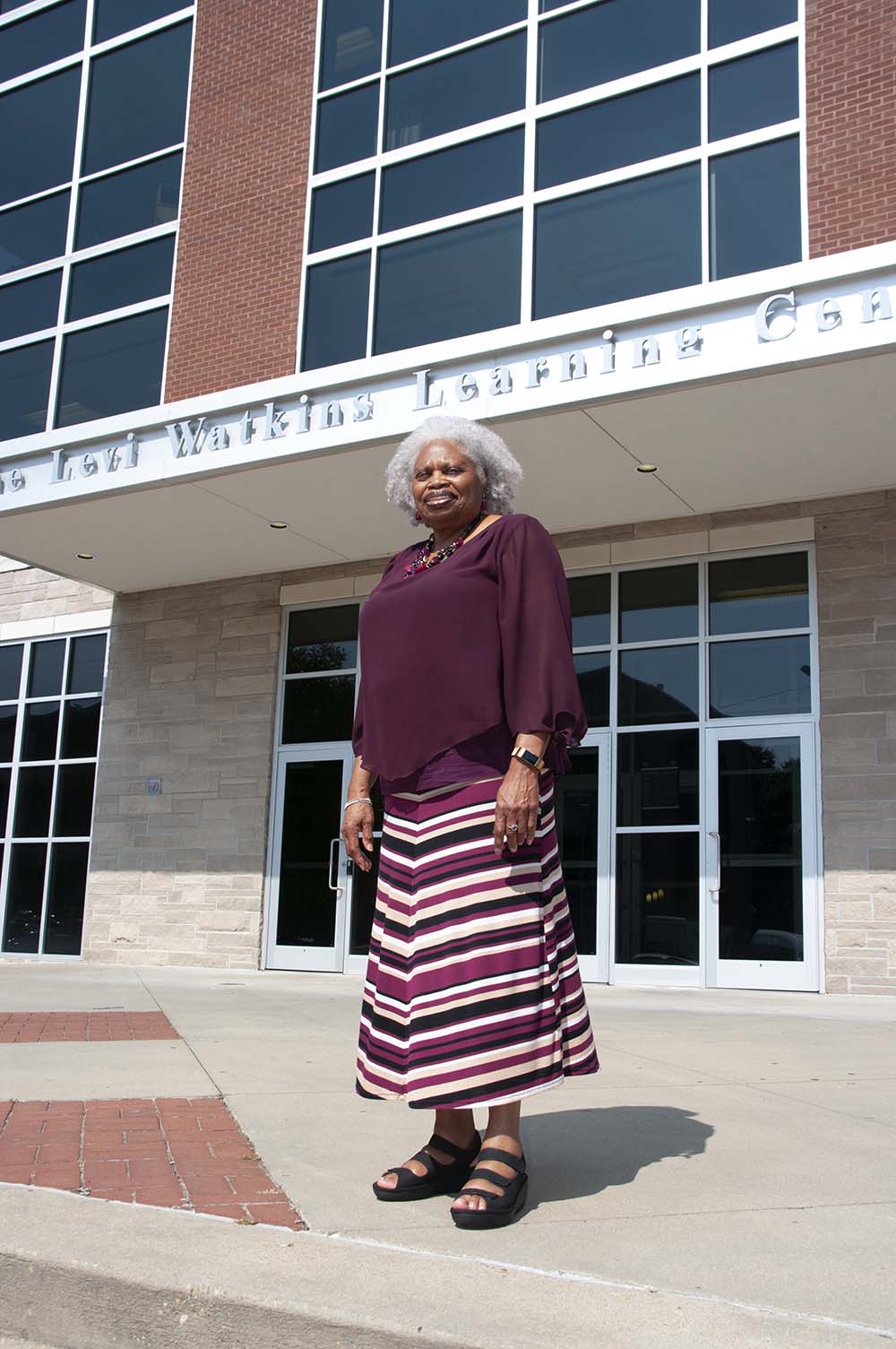 Studying history and making it
Studying history and making it
Wetumpka native Frazine Taylor, librarian, archivist and longtime member of the Alabama Historical Association (AHA), became that organization’s first African-American president at its recent statewide meeting. The AHA is an independent, nonprofit organization that promotes exploration and study of all aspects of Alabama’s history, and sponsors the state’s historical marker program.
Taylor spent much of her career at the Alabama Department of Archives and History, where she helped professional historians as well as everyday people research their family histories. Today, she works part-time at Alabama State University, working to process and catalog collections related to the university’s history, including its part in the civil rights movement. We asked her to talk about her life’s work and about the role she’ll play in promoting Alabama’s history, and about the recent award she received from the AHA. – Allison Law
Talk about the work you did at the Archives.
When people came in to look for family information, (our staff’s) job was to make sure that they were able to look at census records, at county records, to know how to use the microfilm, and to create policies to make it easier for them to use the archives and records within the reference room.
Along the way, I became sort of an expert in African-American genealogy. In (researching) other ethnic groups, the records for them are more straightforward. You can go to the census, you can go to their inventories, their land records. But when you get to African-American research, you have to search those records differently, using different strategies.
Over my 20-something years, I created workshops to help African-Americans research their family history, just starting with the basics – starting with yourself and working backwards. A lot of African-Americans thought there was nothing in the records where they could find their ancestors. But they didn’t realize there were a whole lot of ancestors between 1865 and the present! Just creating strategies to help people locate the slaveholder, if they didn’t have the oral history that was passed down from generation to generation. There are two slave censuses, 1850 and 1860, that list the names of the slaveholders and the amount of slaves that they had, and also the population census. So it’s just a matter of researching your ancestors. I’ve gone all over the U.S. doing different workshops.
Have you been involved with the Alabama Historical Association for a long time?
Yes, I have. I can’t remember when I became a member, but I’ve always been a member. When I worked at the Archives, I used to go to the meetings and listen and enjoy every bit of it. I had no idea I would be given an award and be the president! I didn’t even think that far ahead. I just enjoyed going, and the camaraderie. And also the different research papers – that’s where I learned a lot about Alabama history, through the presentations that were given at these conferences.
And also the pilgrimage, being able to go out into a community and looking at the houses, and talking to the people who lived in the houses, or at the churches, the buildings, the places we visited, and just get the history of the community.
By the way, this year, the pilgrimage will be in my hometown of Wetumpka (Oct. 11-12). We’ll be able to explore Wetumpka’s history.
You also received the Hamilton Award from the AHA. Talk a little about that.
That was a surprise! It’s given “for significant contributions to Alabama history, which encourage joint endeavors and mutual understanding between non-professional and professional historians.” That’s basically what I was doing at the Archives. Professional people came in, writing books and doing dissertations, as well as the non-professionals who were doing family histories. My name is in a lot of those books, people giving recognition for helping them.
Talk about what it means to be the first African-American president of the AHA.
For one thing, it’s a great honor. I know that I won’t be the last. I hope I won’t be the last! Someone has to be the first! Also, people who didn’t know about this association, (hopefully) will now want to know more about it, and may want to join. So hopefully we will get some more membership.
Is the AHA just for professional historians?
No, it’s open to everybody. It’s a learning opportunity, if you’re curious about Alabama history. Being a member, you get the Alabama Review, which is a scholarly publication, and it comes out four times a year. And you get a chance to meet wonderful people! It is a great networking opportunity. Plus, you cannot learn everything in a textbook.
For more information on the AHA, visit alabamahistory.net




